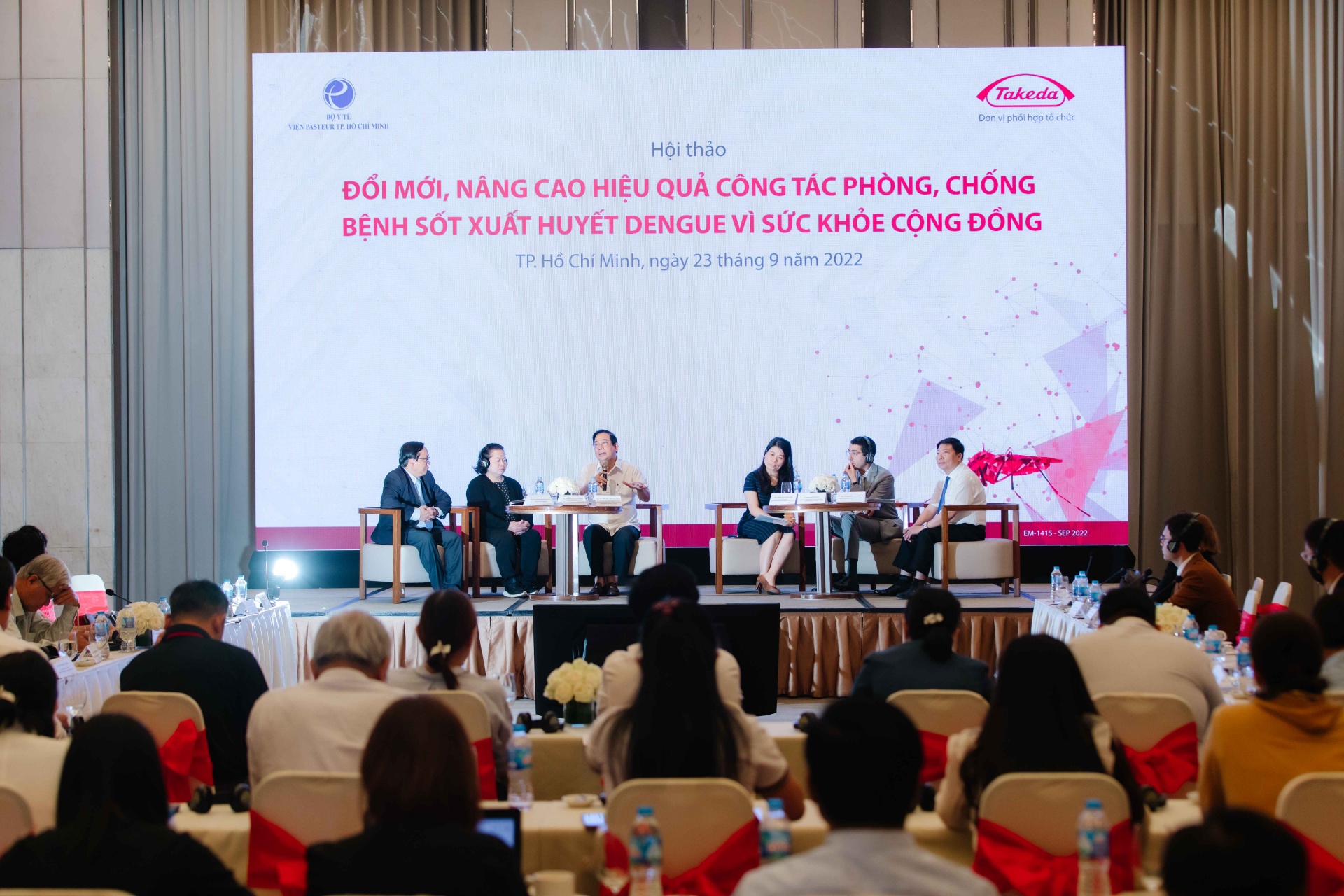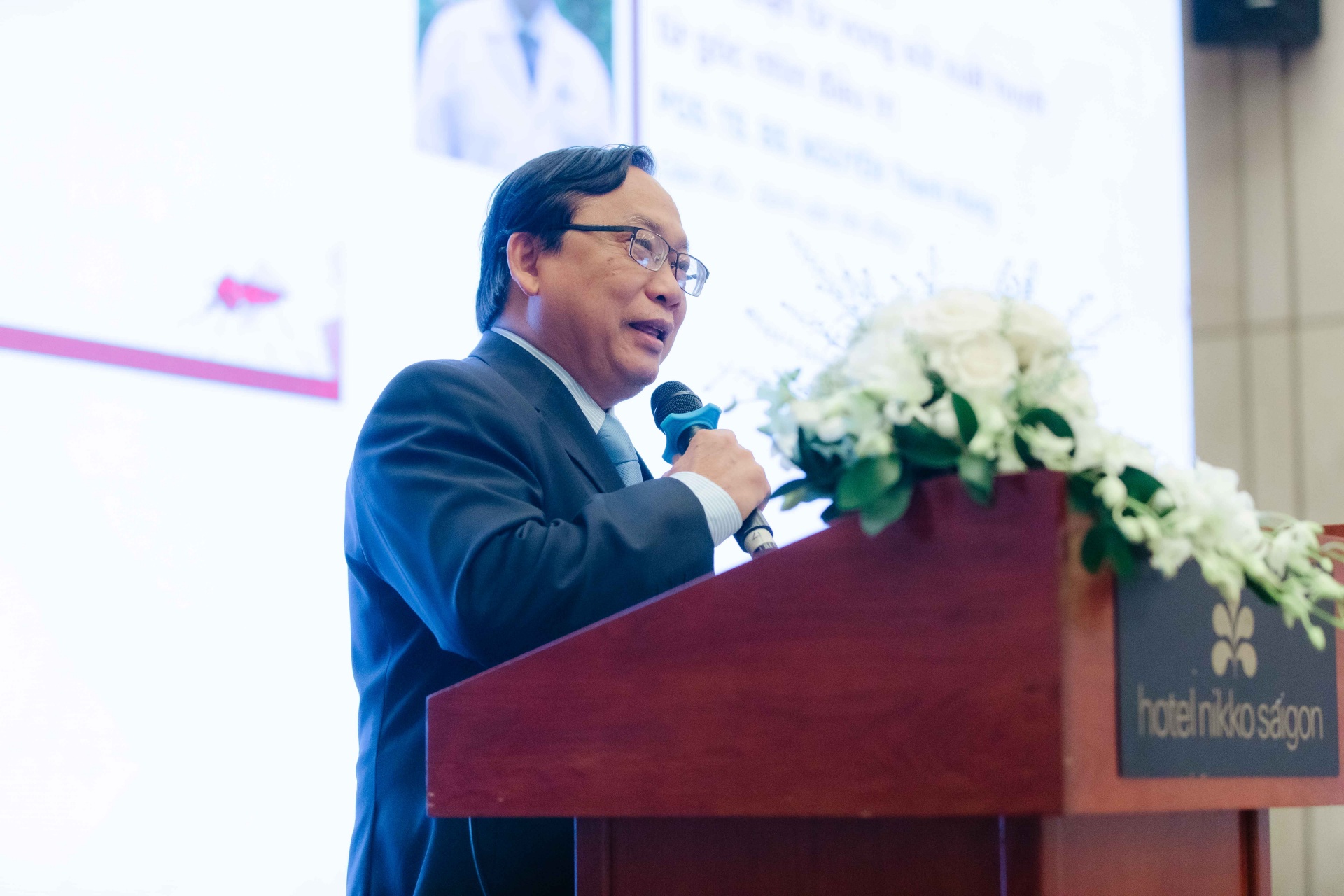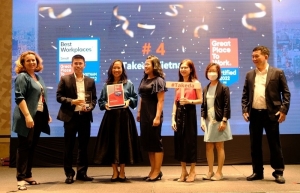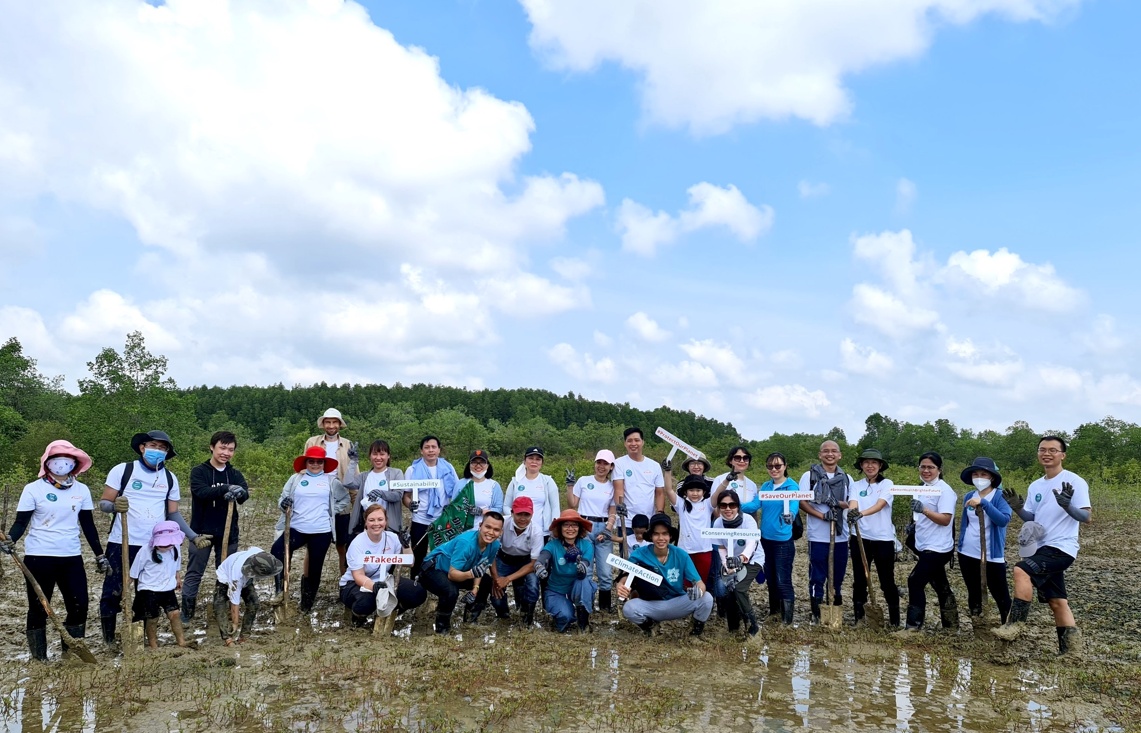Takeda Vietnam enhances effectiveness of dengue prevention and control
 |
The event by the Pasteur Institute in Ho Chi Minh City in collaboration with Takeda Vietnam drew the attention of more than 100 delegates. These included leading healthcare professionals specialising in preventive medicine from departments under the Ministry of Health, the World Health Organization, Ho Chi Minh City Department of Health, Centres for Disease Control and Prevention, hospitals, and other local and international organisations,
The workshop aimed to share the latest updates on the situation and planning for the prevention and control of dengue in Vietnam. Through this event, participants from both public and private sectors – both local and international – exchanged experience and expertise in dengue prevention and vector control in the region.
The local health ministry reported roughly 211,300 dengue cases and 87 deaths since the beginning of this year, an increase in both compared to the same period last year. Patients with dengue infections, both children and adults, have recorded a sharp rise, with a high rate of severe cases that have resulted in fatalities.
The spread of dengue fever has shown signs of increasing nationwide, especially in southern localities.
According to Nguyen Thanh Hung, director of Ho Chi Minh City Children's Hospital 1, over the past two years, Vietnam has recorded a decrease in the total number of dengue cases from previous years due to the pandemic outbreak together with stringent 5K anti-pandemic measures and vaccinations. This year, however, Vietnam has so far recorded a sharp increase in dengue fever including a high number of severe cases being hospitalised.
Under the directions from the Ministry of Health, Ho Chi Minh City People’s Committee, and Ho Chi Minh City Department of Health, three pediatric hospitals – Children’s Hospital 1, Children’s Hospital 2, and Ho Chi Minh City Children’s Hospital – have prepared treatment facilities to proactively fight against a high-risk dengue fever outbreak.
“In Children's Hospital 1 alone, we have expanded medical facilities to admit and treat severe dengue patients. Our hospitals always try to ensure the supply of fluids and professional support to treat dengue patients and have successfully saved the lives of many severe cases,” Dr. Hung added.
 |
Dr. Nguyen Vu Trung, director of the Pasteur Institute in Ho Chi Minh City warned, “Dengue infections are caused by four virus serotypes. Secondary infection with a different serotype can potentially increase the risk of developing severe dengue disease. In other words, subsequent infections can put individuals at a greater risk of severe dengue illnesses. However, whether dengue fever becomes more severe or not depends much on timely detection, diagnosis, and treatment guidelines. Above all, the prevention of dengue fever should be regular and long term and needs the joint efforts of the people, the community, and the society.”
Due to the extreme challenges of dengue fever, some countries have approved the dengue vaccine. It is considered a sustainable and long-term solution to prevent dengue fever as well as its unexpected impacts on patients.
 | Takeda Vietnam wins Best Workplace in Asia 2022 award by Great Place to Work Takeda Vietnam has prevailed over thousands of organisations to win the Best Workplace in Asia 2022 award by Great Place to Work, the global authority on workplace culture. |
 | Takeda Vietnam listed in the inaugural 2022 Vietnam Best Workplaces Takeda Vietnam was recognised as one of Vietnam’s best workplaces in 2022 by Great Place to Work® ASEAN & ANZ, the global organisation on workplace culture. |
 | Takeda Vietnam and Gaia plant over 500 trees in Can Gio Biosphere Reserve Takeda Vietnam is demonstrating its commitment to protecting the planet through the planting of more than 500 trees in Can Gio Biosphere Reserve, located about 50km from Ho Chi Minh City. |
What the stars mean:
★ Poor ★ ★ Promising ★★★ Good ★★★★ Very good ★★★★★ Exceptional
Related Contents
Latest News
More News
- Vietnam Television launches third 'Song Sau Lu' project for 2025 (December 15, 2025 | 08:00)
- Closing workshop highlights five-year impact of Fair for All project (December 12, 2025 | 16:22)
- Stakeholders mobilised before new child safety rules take effect (December 10, 2025 | 09:00)
- Vietnam receives emergency international relief as regional flooding intensifies (December 04, 2025 | 15:11)
- AmCham scholarships awarded to students (December 02, 2025 | 16:46)
- Vietjet flights carry love to devastated central region (November 28, 2025 | 11:35)
- SCG Sharing the Dream supports Vietnam’s youth and sustainable development goals (November 28, 2025 | 10:55)
- Siemens Caring Hands donates $34,700 for disaster relief in Vietnam (November 26, 2025 | 20:25)
- Ireland extends support for the Resilience First initiative (November 26, 2025 | 15:24)
- South Korea funds IOM relief for Vietnam’s typhoon-affected communities (November 24, 2025 | 15:33)

 Tag:
Tag:




















 Mobile Version
Mobile Version